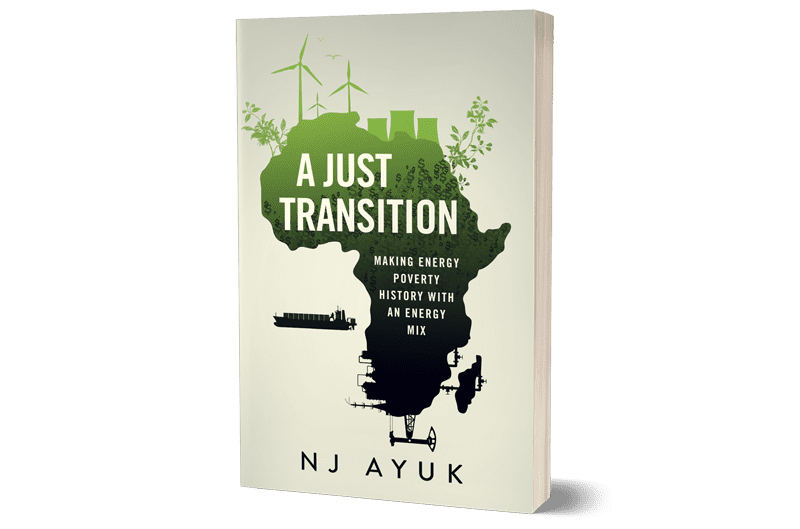I wrote about the oil and gas gender gap in my last book, Billions at Play: The Future of African Energy and Doing Deals, but as we expand Africa’s energy mix, I feel the need to revisit this topic. We must put a stop to Africa’s energy industry gender disparity. We need to create more opportunities for women to join the sector, from oil and gas to renewables, in higher-paying jobs.
Positive Impacts
Research proves that when women have access to meaningful employment, more rights for women and gender equality follow. The ability to earn their own incomes and maintain their independence creates personal empowerment with far-ranging effects. The United Nations said, “When more women work, economies grow. Women’s economic empowerment boosts productivity, increases economic diversification and income equality in addition to other positive development outcomes.”
Women tend to have a positive impact on the businesses they work for and lead, from improved communication and innovation to profitability. After the Peterson Institute for International Economics surveyed 21,980 firms from 91 countries, it found that having women at the C-suite level significantly increased net margins.
First Round Capital says that companies with female founders or leaders performed up to 63 percent better than male-led companies. The CFR Women and Foreign Policy Program’s new digital report, Growing Economies Through Gender Parity, brought these arguments closer to home. The report, which incorporates data from the McKinsey Global Institute, maintains that Nigeria’s gross domestic product could grow by 23 percent – USD229 billion – by 2025 if women participated in the economy to the same extent as men. And the International Monetary Fund (IMF) has found that strengthening gender equality in Nigeria could be an economic game-changer, leading to higher productivity and greater economic stability.
The benefits of closing the gender gap don’t stop there. Because of their experience and backgrounds, women bring different perspectives on a wide range of issues to the workplace. Introducing more diversity of thought into group problem-solving situations, in particular, can resolve complex issues faster and better, improving overall productivity. Imagine how beneficial it would be to have a plethora of possible solutions to test and choose from because there is more diversity on the team.
According to Elizabeth Rogo, the founder and CEO of Tsavo Oilfield Services in Kenya, new perspectives stemming from gender diversification can lead to more innovation and creativity in the energy sector, along with social benefits: The more female leaders in the industry, the more likely women are to consider similar careers themselves.
When we educate women to succeed and hire for positions based on merit without regard to gender, we promote equality and encourage success for all of Africa.
As Africa strategically grows its energy mix and we work to create opportunities for Africans, we must make sure that we are doing the heavy lifting to ensure women can seize those opportunities, too.
One major roadblock for women in Africa’s workforce is a lack of access to education. Human Rights Watch reported that in nearly 90 percent of [Sub-Saharan Africa], one-third of primary school age girls aren’t in the classroom. Sadly, the numbers at the secondary school level are equally grim. Two issues related to the region’s culture of early marriage keep teenage girls out of school: Forty percent of Sub-Saharan girls marry before age 18, and then many are expelled because they are pregnant or young mothers. Additional problems include bullying and sexual violence against girls while they are commuting to or attending school, lack of funding for girls’ education – it’s the lowest budget priority in too many African countries – lack of privacy and sanitation at schools, and cultural norms that place little value on girls and/or girls’ education.
Excerpted with permission from the author from A Just Transition: Making Energy Poverty History with an Energy Mix (Made for Success; March 2023).
NJ Ayuk, JD, MBA is an internationally-acclaimed thought leader, lawyer, thinker, speaker and entrepreneur, who advises major companies on corporate strategies with a focus on investing in Africa’s future. He also serves as the executive chairman of the African Energy Chamber, CEO of Pan-African corporate law conglomerate Centurion Law Group, and is the author of Big Barrels as well as the bestselling Billions at Play: The Future of African Energy and Doing Deals. Visit njayuk.com.
Oil and gas operations are commonly found in remote locations far from company headquarters. Now, it's possible to monitor pump operations, collate and analyze seismic data, and track employees around the world from almost anywhere. Whether employees are in the office or in the field, the internet and related applications enable a greater multidirectional flow of information – and control – than ever before.




